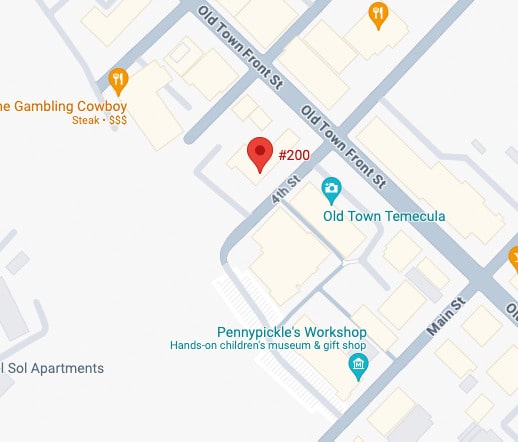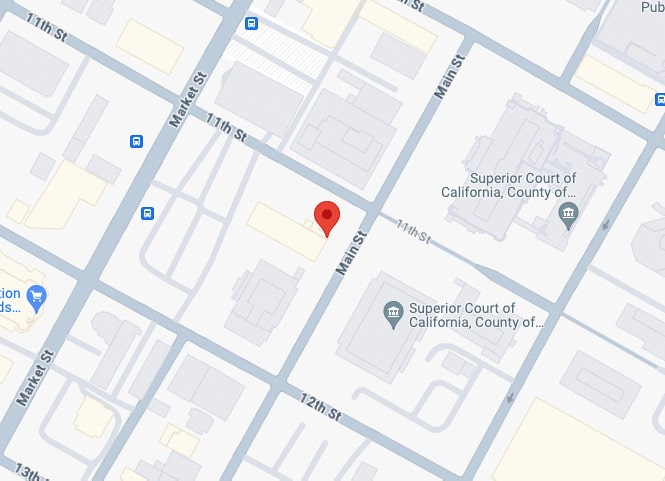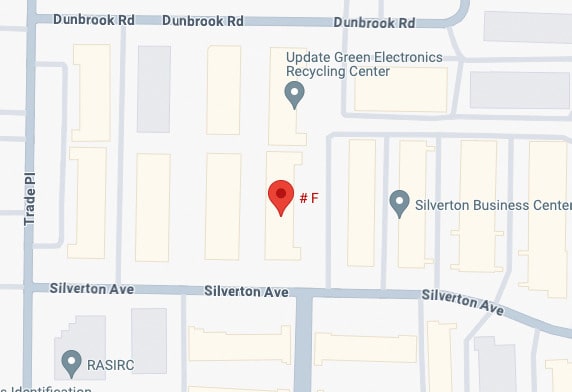You will likely feel baffled and overwhelmed when you discover that your friend or relative has been apprehended. If you are not familiar with the bail process and justice system, you will have a lot of anxiety not knowing what to expect. Despite the worry and confusion, you will want the arrestee out of police custody as soon as possible. The best way to secure a prompt pretrial release for the arrestee is to sign a contract with a reputable bail bonds service. However, by cosigning the bail bond, you become an indemnitor, which comes with significant duties and risks. Therefore, before becoming an indemnitor, you should understand the definition of an indemnitor and the roles and risks associated with the position.
Indemnitor Definition
The funds or assets you deposit with the jail or court to obtain a discharge from jail awaiting trial are known as bail. When releasing you on bail, the court imposes conditions that you should abide by while outside. Violating these rules, like jumping bail, results in bail forfeiture. Nevertheless, when you fulfill the court requirements and attend all court proceedings, you will receive an asset or cash refund, regardless of the court’s verdict. Bail is not punishment for your crime but a guarantee you will show up in court when asked to. However, you should know that the court will deduct some fines from the refund, so you should not expect the exact amount you posted.
Unfortunately, not many defendants have bail money upfront. In these situations, you will call someone you trust or a bail bondsman to help you exit jail. The person you call is also not likely to have the money for cash bail, so they will call a bail bonds company.
If an arrestee calls you informing you of an arrest and they do not have funds for bail, you will need a bail bondsman and a co-signer. A cosigner, otherwise called an indemnitor, is the individual who cosigns the arrestee's bail agreement so that they can obtain a bail bond. Being an indemnitor makes you a guarantor, so you can be financially liable for the entire bail if the arrestee jumps bail. Besides, by co-signing the legal document, you pledge to ensure the arrestee obeys all the pretrial discharge conditions. If they violate these terms, you will suffer the consequences. With this in mind, you will wonder whether you should become the arrestee’s cosigner. You can cosign the contract for their release if you trust the accused.
Even though you want to speed up the defendant’s release, discussing your role and liability with the bail bonds service is crucial before cosigning. Depending on your credit rating or the defendant's, some bail bondsmen require you to put up real property, a vehicle, jewelry, or other valuable items as collateral. That way, should the accused miss court hearings and bail is forfeited, you can pay the company the money they have lost or surrender the collateral so that they can sell it and recover their losses.
Being an indemnitor, you vouch for the defendant and pledge to walk with them throughout the trial. Therefore, before cosigning, the defendant should be someone you know well and with whom you have a strong bond, like a lifelong friend, coworker, spouse, or sibling; otherwise, the bail company could deny you the role.
Indemnitor Qualifications
Even though you want to cosign an arrestee’s bail bond, you must be qualified. Therefore, before the bail bondsman accepts you for the role, they will run a few background checks to ensure you are qualified.
The company you will approach to help the accused acquire bail bonds evaluates to ensure you are eligible for the role. Typically, they will establish your eligibility by asking questions about your relationship with the arrestee, credit score, assets, and financial position. After answering these questions, the bail bondsman will decide if you qualify. You are qualified to be an indemnitor if:
- You are an American citizen
- You have a good credit rating, which makes you trustworthy to the company — They want someone who will pay the full bail when the defendant skips court.
- You are close to or have a strong bond with the defendant, which ensures you are committed to ensuring they do not violate their release terms.
- Your debt amount is high relative to your income, which shows your capacity to pay bail when the defendant jumps bail.
- You have been residing in the exact location for a long time, demonstrating stability in residency, which is a plus during the assessment.
- You are above the legal age of 18. And in cases involving juvenile delinquents, you should be the juvenile’s parent or lawful guardian.
- You have a stable revenue source, like a stable job, to demonstrate your ability to shoulder the financial burden of bail forfeiture.
You should know that even if, after evaluation, the bail bondsman accepts you as an indemnitor, you should consider many factors before taking the role. You should think about the person for whom you are signing the contract.
Are they trustworthy and reliable? Will they cooperate and agree to work together to satisfy the court and bail bondsman’s conditions?
Again, do not sign the contract until you read and understand all the terms and responsibilities. If there are areas of the agreement you do not understand or are unclear, ask questions before appending your signature to the legal document. And if you are ready to offer assistance, you must know that a liability comes with the role. If the accused runs away, cannot be found, or misses court proceedings, you will pay the face bail.
Bail Bond Cosigner Responsibilities
An arrestee only exits jail when you, the indemnitor, sign a contract with a bail bondsman. When you consent to become a guarantor for the bond, you assume the arrestee’s legal and financial responsibilities until the matter in court is resolved. If you plan to cosign a defendant’s pretrial release on bail bonds, you should understand what the law expects of you as a co-signer.
As a cosigner, the law expects you to sign the legal contract on behalf of the arrestee to enable them to exit jail by obtaining bail bonds. By co-signing the contract, you assume the defendant’s legal liabilities until their case is resolved. Also, you must pay the fee in cash or an asset, and unlike bail, the money will not be refunded.
Similarly, you are responsible for ensuring the defendant attends all arranged court proceedings after they exit jail. You and the bail bondsman are accountable for the defendant when outside jail. The only reason the court discharges the accused is the promise that they will attend scheduled court hearings; otherwise, bail could be forfeited. Therefore, because your collateral is on the line, you should ensure that the defendant meets court terms, including attending all court proceedings.
Pretrial releases on bail come with strict conditions from the court and the bail bondsman if you acquire a bail bond. The court imposes conditions depending on the type of charge the accused faces. When the charges are for drinking and driving, the court will need you to undergo a drug or alcohol treatment program and install an ignition interlock device to prevent you from driving with any detectable alcohol levels. When the charge is for domestic violence, the court can require you to attend a batterers program and issue a restraining order. Whatever conditions the court imposes, you must ensure the defendant adheres to them.
Indemnitor’s Financial Responsibility
Financial liability is the most significant role you play as a co-signer. So, when the defendant jumps bail and cannot be found, the bail bondsman can enforce the responsibility to recover the funds they forfeit to the court. They will come after you to pay the total funds forfeited, usually, the bail figure, which could lead to severe financial problems. If you lack the funds, you will surrender ownership of the collateral you used to secure the bond. The bail bondsman will then auction the collateral and recoup the funds lost.
On the other hand, when you ensure that the defendant attends all court cases and adheres to all conditions, you will receive back the collateral. However, when you fail in this responsibility, you will lose your hard-earned assets, money, vehicles, or real property. A lot is at stake, and the law recognizes this, so when you believe the defendant intends to violate bail conditions like skipping town, you can request the court to cancel the bail to relieve you of the financial responsibility. When this happens, the bail bondsman will withdraw their services and return your collateral. The defendant will be sent back to jail until they find a new cosigner and bail bonds company.
You should know that your financial responsibility becomes severe when the defendant skips town and fails to attend court. The bail bonds firm will hire a bounty hunter or private investigator to find the fugitive and bring them to court. However, the problem for you is that you will pay for these services. If the fugitive is not found, the bond will be forfeited, meaning you will assume the burden of paying full bail, which can be difficult considering you are not the person who committed a crime.
With that said, you have the final decision. Do not cosign for someone you do not know or trust because you will face severe ramifications. Therefore, when putting up collateral, let it be assets or real property you can live without. If you want to cosign someone’s release, ensure that you have known the individual for a long time or that they are your family so that nothing goes wrong and you end up losing your money.
Indemnitor Liability in the Bail Bonds Process
When you receive a call informing you of the arrest of someone close to you, you want to risk everything to have them exit police custody as soon as possible. If you wish to assume the cosigner position, you should be ready to undergo the bail bonds procedure, which can be confusing if it is your first time.
Typically, you, a friend or relative to the accused, initiate the process by contacting a bail bond agent. However, before this, the process starts with the defendant’s physical arrest. For the police to arrest a defendant, they need probable cause that a crime was being committed. After arrest, the person is put in police custody and later in the nearest jail, where booking happens. This phase involves recording the arrestee's personal information, such as name, criminal record, possessions, and other information relevant to the case's prosecution.
The officer will take a mugshot of the arrestee for identification and then undergo fingerprinting to help obtain biometric records. Sometimes, the officer will require the accused to provide their physical address and phone number.
The fingerprints can run background checks and establish the accused’s criminal history and pending arrest warrants. This information helps determine bail as provided in the bail schedule. After, the defendant is allowed one call, usually to a person they trust and find reliable, like a family member or friend, to notify them of the arrest. If you receive this call from an arrestee, you want them to help you with their bail release. Usually, the arrestee will inform you about their jail, charges, and the bail set. If you do not have the bail money, you should contact a bail bondsman to explain your options and the best way to secure a prompt pretrial discharge for your loved one.
You should know that in many cases, a judge holds a bail proceeding to rule on bail and the amount that should be paid. The bail hearing should happen within 24 hours of booking unless it is on a weekend or holiday. The judge mentions the charges in the hearing, and the defendant takes a plea. When the defendant pleads guilty, the court will not have a trial, meaning there will be no need for bail. However, when the accused pleads not guilty or no contest, bail must be set to allow a pretrial release pending trial.
When you learn the amount the defendant should pay after the hearing, you should contact a competent bail bondsman immediately. These are the best professionals to partner with at this dark hour because they expedite the discharge process. The company will do all the work for you, eliminating the stress of bailing someone out of jail. The company posts a bond for the defendant. Still, before doing this, they will usually require an indemnitor, typically the arrestee's loved one, college, or friend, to cosign the bail agreement.
As a cosigner, you have many responsibilities, including signing the legal documents, depositing the non-refundable fee, and collateralizing the bond. Once you do this, the paperwork is completed, and the bail bondsman moves quickly to post the entire bail on behalf of the arrestee so that they can be released. After the bond is deposited with the relevant jail or court, the accused obtains freedom pending case conclusion, sentencing, or charge dismissal. The release process takes, at most, two hours.
Indemnitor Pays All Bail Bond-Related Costs
The total cost of the bail bond is contingent on the bail amount set for the offense in question. The fees are non-refundable because they are fees for the services offered to have the accused exit jail. Additionally, you will pay for other extra costs associated with processing the release of the accused, like administration fees.
Cosigner Rights
Being an indemnitor or cosigner is a massive responsibility. Therefore, before taking on this role, you should understand your rights. First, the role is optional. You have a right to assess the bail conditions imposed by the court and your responsibilities in the bail contract to decide whether or not to agree. This is because when you sign the contract, you will face serious consequences when the accused jumps bail.
Also, you can cancel the agreement after signing if you are convinced the defendant plans to jump bail by skipping town. Once you communicate your intentions to withdraw from the contract, the defendant will be rearrested and detained until they can find another cosigner or bail bonds company.
Choosing an Indemnitor
As the defendant, your choice of an indemnitor will determine the time you spend behind bars before release and if you will satisfy the court’s conditions until the case closes.
Most cosigners are family, colleagues, or friends, so you should know that your decision will lead to complications, particularly if you disagree on court attendance. The role also comes with a lot of pressure, so you must pick someone comfortable with the role and who will walk with you until the end of the court process.
When selecting, go for the individual who will take the role seriously, be willing to assist, and handle the process immediately, regardless of your charges. Consider the indemnitor’s performance in previous employment, financial stability, and liability to pick the best for the role.
Find a Reliable Bail Bondsmen Near Me
Arrests are some of the most challenging times for the accused. By assuming the position of an indemnitor, you are pledging to help the accused through the justice system process and ensure they spend the least time in jail. However, with the liabilities associated with co-signing bail contracts, you should speak to a bail bondsman to understand the risks and responsibilities.
At Justice Bail Bonds, we know the enormous responsibility you are taking on. Therefore, we can educate, clarify, and answer your questions about the process. Contact us today at 714-541-1155 to expedite your loved one's discharge from jail in Temecula.










